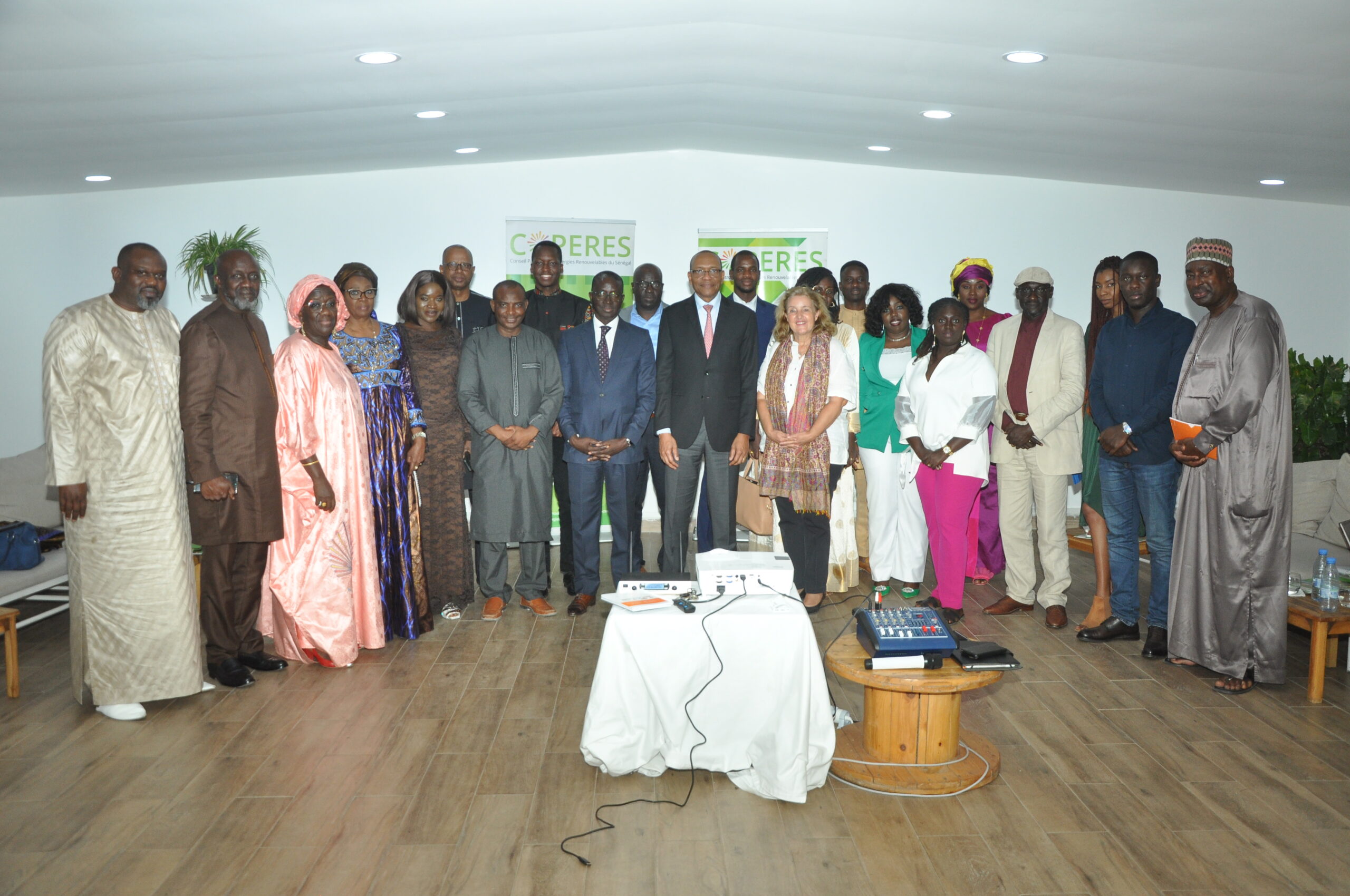Presidents (outgoing and incoming),
Dear guests,
I am delighted to take part today in your Ordinary General Meeting, which gives us the opportunity to discuss highly strategic issues in the field of energy and particularly renewable energies.
I would like to thank you for your invitation, but also and above all for the role that your Board plays in promoting renewable energies.
Energy, as you know, occupies a prominent place in the country’s development policy, as set out in the strategic document of the Emerging Senegal Plan, which is our compass.
Indeed, Senegal has made energy the central axis of its accelerated growth strategy, with a view to achieving economic emergence by 2035.
By choosing to place your meeting under the theme “Role and responsibilities of the private sector in achieving the goal of universal access to energy by 2025”, you are touching on one of the issues that most preoccupies the government.
The greatest challenges today are first and foremost the availability of energy, particularly in rural areas, so that all citizens have access to quality, competitive and sustainable energy. We are working on this every day, and for this, the contribution of the private sector is fundamental.
Overall, we must win the battles over access to electricity, rural electrification, energy efficiency, and the cost of electricity.
Ladies and Gentlemen,
Beyond the principle that the most renewable, cheapest and least polluting energy, in general, is energy that is not consumed; renewable energies offer the advantage of being faster to implement, closer to demand (thus reducing losses and distribution costs); less demanding in terms of investment programs, which are better adapted to the financial capacities of local and regional entrepreneurs and financial institutions; less polluting; more economically reliable, reducing dependence on fossil fuel imports.
The government’s commitment, which reflects that of the Head of State, Mr. Macky Sall, in the promotion and development of renewable energies is commensurate with the many actions and achievements that have been made in this field.
The State has committed itself to put in place a regulatory framework that has evolved considerably and is committed to a process of promoting renewable energy, energy efficiency and access to energy by developing laws and regulations to enable the private sector to invest in the energy sector with particular : – the elaboration of an Energy Sector Development Policy Letter (LPDSE 2019-2020) validated on October 25. In this letter, the promotion of renewable energies is the subject of a program and an action plan with well-defined priorities.
Between COP 21 in Paris and the last one held in Madrid, the State has invested heavily in the field of renewable energy, with the commissioning of the solar power plants of Bokhol, Malicounda, Ten Merina, Sinthiou Mékhé, not to mention the projects underway in Ndiass, Kahone, the solar power plants we recently inaugurated in the Saloum Islands.
In total, nearly 150 Mw of solar energy has been injected into the interconnected network. Our goal is to achieve a 30% renewable energy mix in the grid.
In addition to solar energy, my department is implementing other forms of energy such as wind power and biomass, with the National Domestic Biogas Program (PNB), which is working on biomass issues to not only provide energy in rural areas, but also and above all to help better structure the economies of these areas.
The installation of the 150 MW Taïba Ndiaye wind power plant is also part of this strategy to diversify production units.
Ladies and Gentlemen,
You will therefore agree with me that major milestones have been set in Senegal and will continue to be set, in particular with the introduction of natural gas in the energy mix from the first half of 2020 via the import of LNG, pending the arrival of local gas from 2022.
Our priority objective in energy is “universal access, from 2025, to competitive energy for businesses, affordable for populations, particularly the most vulnerable, and with low environmental pollution”.
This vision, which is in line with the United Nations’ sustainable development goals, is even more ambitious than the 5-year SDO 7.
Thus, for the energy sector :
Improving and completing the existing governance, legal framework, means of production, performance achieved;
– extend the transmission and distribution networks and partnerships in the sector to take charge of the new gas situation;
– pay particular attention to the tax problems encountered by PPIs in the operation phase;
– And finally, to further diversify the energy mix, hydrocarbon monetization options and industrial applications;
Gas-to-power” is one of the essential links in Senegal’s strategic vision, whose credo is to “maximize in a healthy and sustainable way the socio-economic benefits in the country”.
We are convinced that through the “gas-to-power” strategy, it will be possible:
– on the one hand, accelerate universal access to energy by lowering costs;
– and on the other hand, make Senegal an energy and industrial hub that will take advantage of an attractive business climate and abundant energy to catalyze new industrial sectors such as petrochemicals, fertilizers and metallurgy.
It is therefore a direct and indirect accelerating effect of gas on economic growth that is expected.
As we know, investments in this sector are very heavy. This is why we need the national and international private sector to inject new capital, technology transfers, etc.
We must therefore interact and support each other to make the necessary investments together to develop energy. These investments will enable us to create jobs, reduce unemployment and develop alternative sectors of activity.
We will work together to overcome the problems of the sector, in the interest of all stakeholders.
Thank you for your kind attention!
Mouhamadou Makhtar CISSÉ








